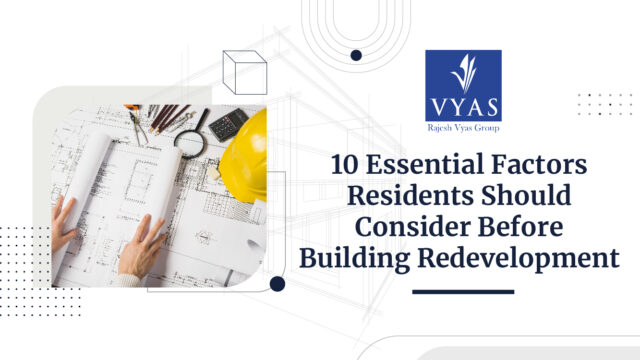

This blog discusses every essential aspect of RERA in detail. Read the blog till the end to know more.
Today, we hear a lot about RERA, especially while looking for a property or our dream home. It is a sine-qua-non for the developers, and we often see their RERA registration number in their advertisements. Although RERA is a common terminology, only a few would actually know what it means for the real estate developer and the buyer.
What is RERA?
‘RERA’ means Real Estate Regulatory Authority, and it came into being under the Real Estate (Regulation and Development) Act, 2016.
For most of the financial or economy-related sectors, there were separate bodies to regulate the transactions and prevent fraudulent activities, such as SEBI (Securities and Exchange Board of India), RBI (Reserve Bank of India), or TRAI (Telecom Regulatory Authority of India). However, the real estate sector lacked any such intervention, and there was a gross violation of the basic rights of the buyers/consumers. The Real Estate (Regulation and Development) Act, 2016 came into being in 2017 to bring accountability, ethical practices, and transparency to the real estate sector.
Under this Act, every state and Union Territory has to have a separate regulatory authority to deal with the real estate sector. Maharashtra’s regulatory authority is called the MAHARERA – Maharashtra Real Estate Regulatory Authority.
The Impact
After the advent of RERA, real estate developers have to follow new norms and regulations enlisted under the Real Estate (Regulation and Development) Act, 2016. The developers must register every new project on the RERA website (on the MAHARERA site in Maharashtra). Moreover, they must keep updating the project progress on the site to maintain transparency in all their dealings. Without registering the newly launched projects on the RERA site, developers can’t advertise or feature the properties anywhere.
RERA’s second most important change is the mandate of depositing 70% of the payment from the buyer in the bank. This way, they can’t misappropriate the funds collected from the buyers.
Why is it Important?
As mentioned earlier, the RERA is the ultimate regulatory authority in the real estate sector. This authority is as important for the developer as it is for the buyer. It brings a bundle of rights & benefits for developers, buyers, and promoters. Looking at all the positive changes the RERA brought into the real estate sector, its importance can be closely observed through the following points.
1. Safety & Reliability
The Real Estate Regulation and Development Act 2016 requires that 70% of the amount paid by the investors and the buyers must be kept in a separate account called an escrow account, as a safety measure. Such an amount is given to the builders in due course for construction or miscellaneous costs related to it. The remaining 30% of the amount can be deposited in the project-relevant bank and can be used for the purposes like repayment of loans, etc. As per norms, it is permitted for the Developer/contractor to take 10% of the agreement value as advance for confirmation of booking and before executing the agreement. However, payment terms can be mutually discussed between the buyer and the Developer at the time of booking.
2. Transparency & Accountability
Under the said Act, the developers are required to submit all the documents associated with their relevant projects to the authority. Further, in case of any change in the agreed plans, they must get the buyer’s consent before executing those changes.
The documents submitted have to be authentic and original. If the buyer comes across any structural errors or lacunas in the construction, the developer has to modify that within 5 years of the purchase of the property. Any such complaint by the buyer must be addressed within 30 days. It is of utmost importance that the buyer does not make any structural changes in their apartment before consulting the Developer.
3. Fair & Ethical
RERA has obligated all the developers to sell their projects and properties as per the comprehensive carpet area. The concept of a super built-up area has become obsolete. If in case of some unavoidable delay, the project gets stalled (even if it is RERA registered), the buyers have the right to recover the whole amount they have invested till that time. They may stay invested and ask the developer to give them monthly investments based on the amount paid by them.
Benefits of RERA
If we take a look at all the provisions enlisted under RERA, we can see that the benefits offered by RERA are manifold. Let us take a brief look at those benefits through some key points.
1. Standard Pricing
Back in the day, when there was no parameter for setting the price of a property, developers used to charge as per their will. With RERA, the pricing of the property is standardised through a proper computational formula for calculating the carpet area. As a result of this standardisation, the builders and promoters can’t offer excessive carpet area just to increase the overall pricing.
2. Grievance Redressal Forum
RERA authority acts as the resolving mechanism for the buyers as well as developers/constructors. It can resolve the complaint filed by any of them through the due procedure offered under RERA. Furthermore, if any of the parties believe that the decision of the RERA authority was not just, it can file an appeal in the appellate tribunal.
3. Authentic projects and Developers
Failing to comply with the RERA norms, false or unauthentic developers and their projects will eventually disappear from the market. Such dismissal of unauthentic developers and projects will keep the faith in the genuine developers intact and it will safeguard the interest of the buyers against fraudulent practices.
4. More number of buyers and investors
RERA has streamlined and has made real estate transactions full-proof. Thanks to that assurance, many new investors would want to invest in the real estate sector. It is also a significant development that is attracting more buyers to real estate projects.
All in all, the RERA serves as both the sword and the shield for the buyers while also saving the interests of the builders and promoters.


